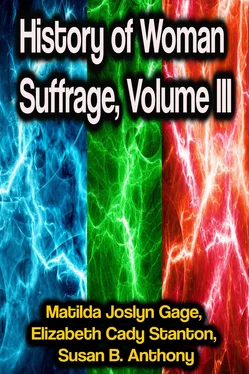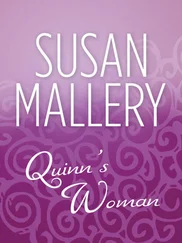A review of the history of our nation during the century will show the American people that all the obstacles that have impeded their political, moral and material progress from the dominion of slavery down to the present epidemic of political corruptions, are directly and indirectly traceable to the federal constitution as their source and support. Hence the necessity of prompt and appropriate amendments. Nothing that is incorrect in principle can ever be productive of beneficial results, and no custom or authority is able to alter or overrule this inviolate law of development. The catch-phrases of politicians, such as "organic development," "the logic of events," and "things will regulate themselves," have deceived the thoughtless long enough. There is just one road to safety, and that is to understand the law governing the situation and to bring the nation in line with it. Grave political problems are solved in two ways—by a wise forethought, and reformation; or by general dissatisfaction, resistance, and revolution.
In closing, let me remind you, gentlemen, that woman has not been a heedless spectator of all the great events of the century, nor a dull listener to the grand debates on human freedom and equality. She has learned the lesson of self-sacrifice, self-discipline, and self-government in the same school with the heroes of American liberty.[29]
Matilda Joslyn Gage, of New York, corresponding secretary of the association, said: Mr. Chairman and Gentlemen of the Committee —You have heard the general argument for woman from Mrs. Stanton, but there are women here from all parts of the Union, and each one feels that she must say a word to show how united we stand. It is because we have respect for law that we come before you to-day. We recognize the fact that in good law lies the security of all our rights, but as woman has been denied the constructive rights of the declaration and constitution, she is obliged to ask for a direct recognition in the adoption of a sixteenth amendment.
The first principle of liberty is division of power. In the country of the czar or the sultan there is no liberty of thought or action. In limited monarchies power is somewhat divided, and we find larger liberty and a broader civilization. Coming to the United States we find a still greater division of power, a still more extended liberty—civil, religious, political. No nation in the world is as respected as our own; no title so proud as that of American citizen; it carries with it abroad a protection as large as did that of Rome two thousand years ago. But as proud as is this name of American citizen, it brings with it only shame and humiliation to one-half of the nation. Woman has no part nor lot in the matter. The pride of citizenship is not for her, for woman is still a political slave. While the form of our government seems to include the whole people, one-half of them are denied a right to participate in its benefits, are denied the right of self-government. Woman equally with man has natural rights; woman equally with man is a responsible being.
It is said women are not fit for freedom. Well, then, secure us freedom and make us fit for it. Macaulay said many politicians of his time were in the habit of laying it down as a self-evident proposition that no people were fit to be free till they were in a condition to use their freedom; "but," said Macaulay, "this maxim is worthy of the fool in the old story, who resolved not to go into the water till he had learned to swim. If men [or women] are to wait for liberty till they become good and wise in slavery, they may indeed wait forever."
There has been much talk about precedent. Many women in this country vote upon school questions, and in England at all municipal elections. I wish to call your attention a little further back, to the time that the Saxons first established free government in England. Women, as well as men, took part in the Witenagemote, the great national council of our Saxon ancestors in England. When Whightred, king of Kent, in the seventh century, assembled the national legislature at Baghamstead to enact a new code of laws, the queen, abbesses, and many ladies of quality signed the decrees. Also, at Beaconsfield, the abbesses took part in the council. In the reign of Henry III. four women took seats in parliament, and in the reign of Edward I. ten ladies were called to parliament and helped to govern Great Britain. Also, in 1252, Henry left his Queen Elinor as keeper of the great seal, or lord chancellor, while he went abroad. She sat in the Aula Regia, the highest court of the kingdom, holding the highest judicial power in great Britain. Not only among our forefathers in Britain do we find that women took part in government, but, going back to the Roman Empire, we find the Emperor Heliogabalus introducing his mother into the senate, and giving her a seat near the consuls. He also established a senate of women, which met on the Collis Quirinalis. When Aurelian was emperor he favored the representation of women, and determined to revive this senate, which in lapse of time had fallen to decay. Plutarch mentions that women sat and deliberated in councils, and on questions of peace and war. Hence we have precedents extending very far back into history.
It is sometimes said that women do not desire freedom. But I tell you the desire for freedom lives in every heart. It may be hidden as the water of the never-freezing, rapid-flowing river Neva is hidden. In the winter the ice from Lake Lagoda floats down till it is met by the ice setting up from the sea, when they unite and form a compact mass over it. Men stand upon it, sledges run over it, splendid palaces are built upon it; but beneath all the Neva still rapidly flows, itself unfrozen. The presence of these women before you shows their desire for freedom. They have come from the North, from the South, from the East, from the West, and from the far Pacific slope, demanding freedom for themselves and for all women.
Our demands are often met by the most intolerable tyranny. The Albany Law Journal , one of the most influential legal journals of the great State of New York, had the assurance a few years ago to tell Miss Anthony and myself if we were not suited with "our laws" we could leave the country. What laws did they mean? Men's laws. If we were not suited with these men's laws, made by them to protect themselves, we could leave the country. We were advised to expatriate ourselves, to banish ourselves. But we shall not do it. It is our country, and we shall stay here and change the laws. We shall secure their amendment, so that under them there shall be exact and permanent political equality between men and women. Change is not only a law of life; it is an essential proof of the existence of life. This country has attained its greatness by ever enlarging the bounds of freedom.
In our hearts we feel that there is a word sweeter than mother, home, or heaven. That word is liberty. We ask it of you now. We say to you, secure to us this liberty—the same liberty you have yourselves. In doing this you will not render yourselves poor, but will make us rich indeed.
Mrs. Stewart of Delaware, in illustrating the folly of adverse arguments based on woman's ignorance of political affairs, gave an amusing account of her colored man servant the first time he voted. He had been full of bright anticipations of the coming election day, and when it dawned at last, he asked if he could be spared from his work an hour or so, to vote. "Certainly, Jo," said she, "by all means; go to the polls and do your duty as a citizen." Elated with his new-found dignity, Jo ran down the road, and with a light heart and shining face deposited his vote. On his return Mrs. Stewart questioned him as to his success at the polls. "Well," said he, "first one man nabbed me and gave me the tickets he said I ought to vote, and then another man did the same. I said yes to both and put the tickets in my pocket. I had no use for those Republican or Democratic bits of paper." "Well, Jo," said Mrs. Stewart, "what did you do?" "Why I took that piece of paper that I paid $2.50 for and put it in the box. I knew that was worth something." "Alas! Jo," said his mistress, "you voted your tax receipt, so your first vote has counted nothing." Do you think, gentlemen, said Mrs. Stewart, that such women as attend our conventions, and speak from our platform, could make so ludicrous a blunder? I think not.
Читать дальше












